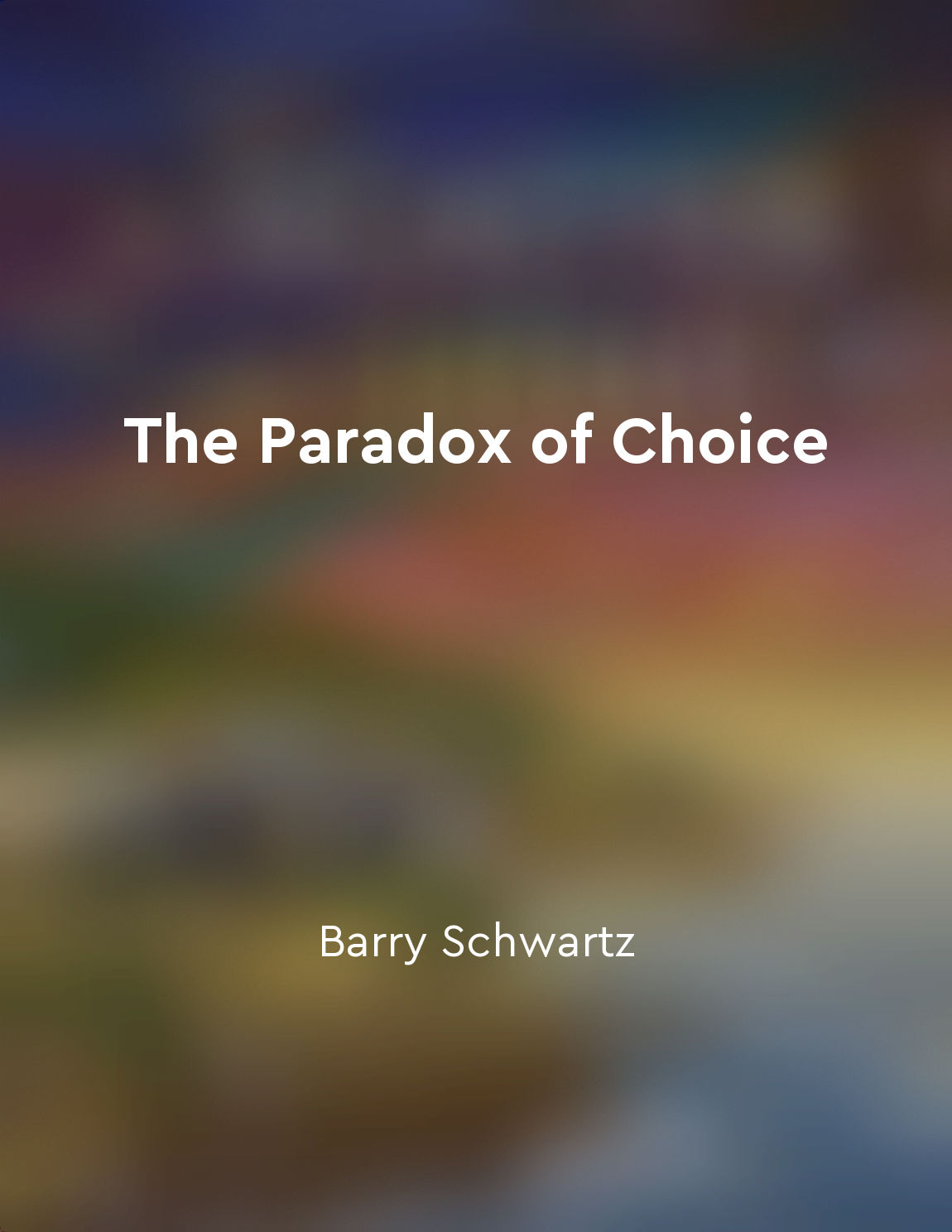The abundance of options can make us less satisfied with our choices from "summary" of The Paradox of Choice by Barry Schwartz
When there are too many options available to us, making a decision becomes overwhelming. The sheer number of choices can lead to paralysis, as we struggle to weigh all the possibilities and make the best decision. In our quest for the perfect option, we become stressed and anxious, worried that we will make the wrong choice. This anxiety can actually decrease our satisfaction with the decision we ultimately make, as we second-guess ourselves and wonder if we could have done better. Additionally, having an abundance of options can raise our expectations unrealistically high. With so many choices available, we start to believe that there must be a perfect option out there, waiting for us to discover it. This belief can lead to a sense of disappointment when we finally make a decision, as it is impossible for any choice to live up to our inflated expectations. We may find ourselves feeling unsatisfied and wondering if we should have chosen differently. Furthermore, the abundance of options can lead to a phenomenon known as "opportunity costs." When we have multiple choices in front of us, we are forced to consider not only the benefits of each option but also the potential drawbacks. This process of weighing the pros and cons of each choice can be mentally exhausting and time-consuming. In the end, we may feel regret over the options we didn't choose, wondering if a different path would have been better.- While having a variety of options can seem like a positive thing, it can actually make us less satisfied with our choices. The overwhelming number of possibilities can lead to anxiety, unrealistic expectations, and regret. By recognizing the impact of choice overload on our decision-making processes, we can strive to simplify our options and make more satisfying decisions.


